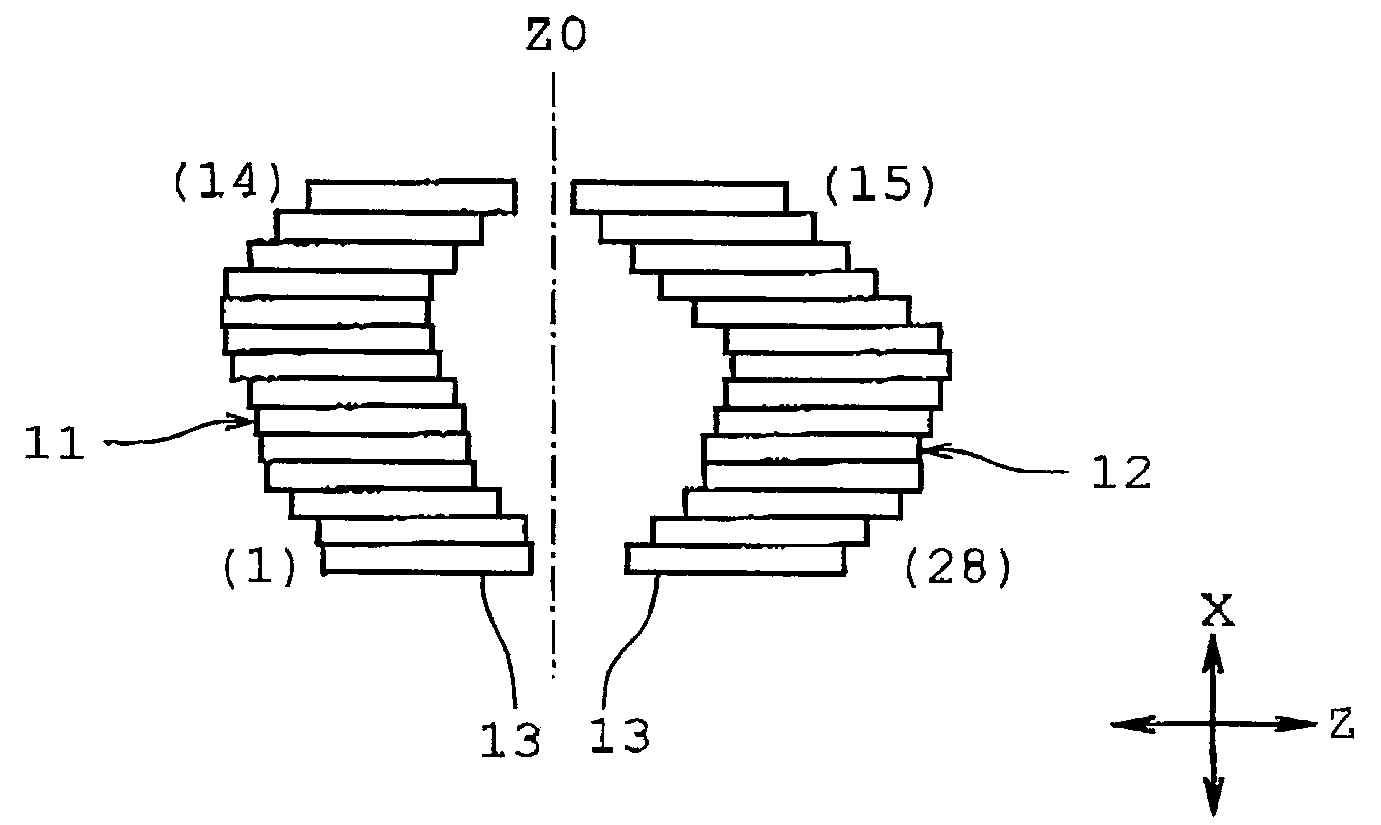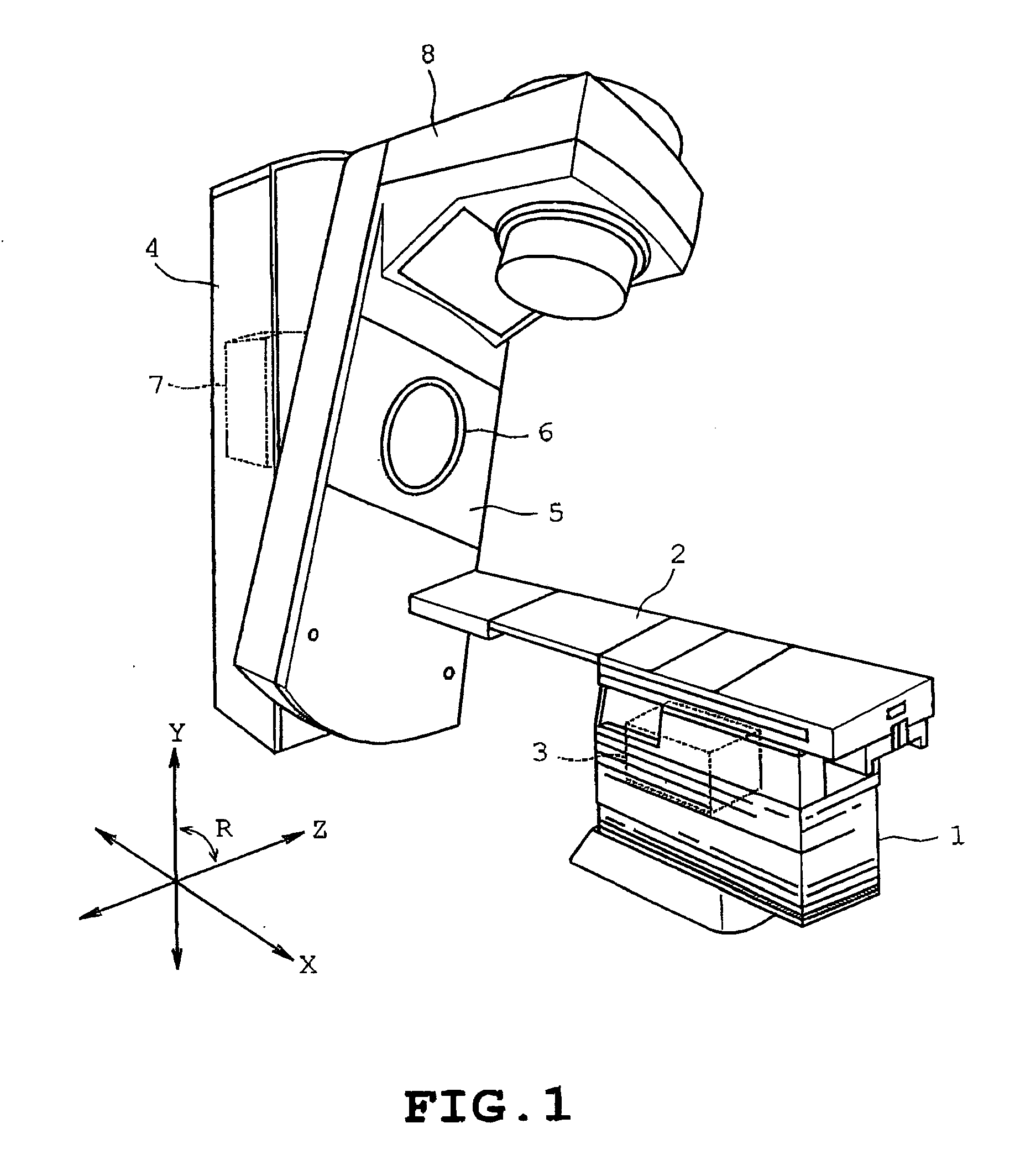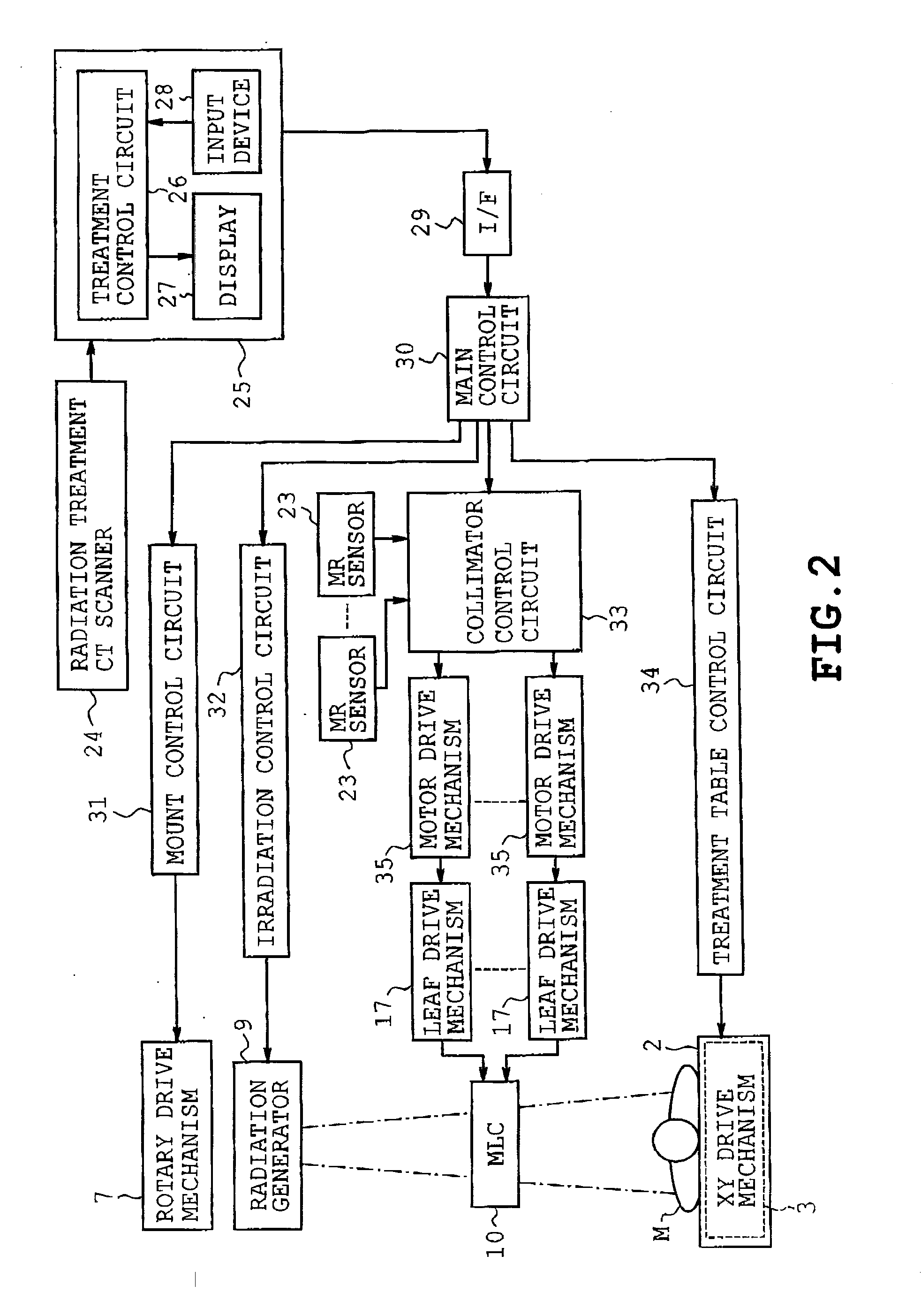Multileaf collimator
a collimator and multi-leaf technology, applied in the field of multi-leaf collimators, can solve the problem that the spacing between the first and second leaf block groups cannot be set to a target configuration accurately
- Summary
- Abstract
- Description
- Claims
- Application Information
AI Technical Summary
Benefits of technology
Problems solved by technology
Method used
Image
Examples
first embodiment
[0019]the present invention will be described with reference to FIGS. 1 to 6. Referring to FIG, 1, a radiation treatment machine or radiotherapy machine is shown to which the multileaf collimator of the invention is applied. The radiation treatment machine includes a stand 1 having an upper end on which a horizontal treatment table 2 extending in the X direction is mounted as shown in FIG. 1. A patient is to be put on the treatment table 2 so that the head and legs of the patient are directed in the X direction for the purpose of medical treatment. The treatment table 2 is connected to an XY drive mechanism including an X-direction motor and a Y-direction motor both serving as drive sources. The XY drive mechanism is housed in the stand 1. An amount of rotation of the X-direction motor is controlled so that the treatment table 2 is moved to a horizontal X-direction target position. An amount of rotation of the Y-direction motor is controlled so that the treatment table 2 is moved to...
second embodiment
[0040]FIG. 7 illustrates the invention. Each leaf block 13 has a plurality of convex portions 41 and a plurality of concave portions 42 alternately formed on the overall arc-shaped face 14 as shown in FIG. 7. The convex portions 41 are circumferentially arranged at regular intervals and have the same circumferential dimension. The concave portions 42 are arranged circumferentially at regular intervals and have the same circumferential dimension as the concave portions 41.
[0041]The magnetic layers 20 are formed on the leaf blocks 13 so as to be located on the entire arc-shaped faces 14 respectively. Each magnetic layer 20 is formed by applying a powdered magnetic material to the arc-shaped face 14 from over the convex and concave portions 41 and 42. The magnetized portion 21 magnetized in the north pole and the magnetized portion 22 magnetized in the south pole are located on the surface of each convex portion 41. Also, the magnetized portion 21 magnetized in the north pole and the m...
PUM
 Login to View More
Login to View More Abstract
Description
Claims
Application Information
 Login to View More
Login to View More - R&D
- Intellectual Property
- Life Sciences
- Materials
- Tech Scout
- Unparalleled Data Quality
- Higher Quality Content
- 60% Fewer Hallucinations
Browse by: Latest US Patents, China's latest patents, Technical Efficacy Thesaurus, Application Domain, Technology Topic, Popular Technical Reports.
© 2025 PatSnap. All rights reserved.Legal|Privacy policy|Modern Slavery Act Transparency Statement|Sitemap|About US| Contact US: help@patsnap.com



